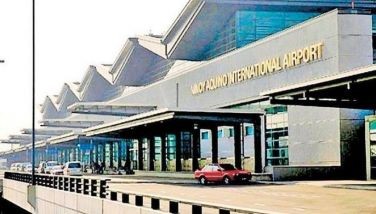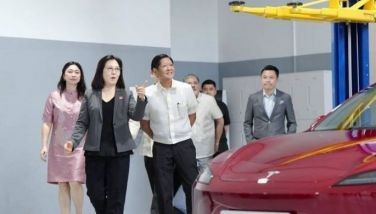Stressful economic issues and challenges

The recent announcement that the second quarter GDP growth for the national economy fell to 4.3 percent compared to the 6.4 percent in the first quarter, was a disappointing result.
Generally improving policies. This column has paid great attention to economic reform issues that affect the direction of national development. To create more impact on the mind of policy makers, I often compare our development experience in light of the accomplishments of our neighbors in the region.
It is no longer the case that macro-economic policy issues are on a danger watchlist as in the past. By and large, macro-management in the economy has become less problematic. The government has improved the resource-generation of public revenues with the tax reforms of the previous administration. In general, too, the investment incentives framework related to the tax regime has been greatly reformed.
Where there is some concern in macro-management is in the volume of social services subsidies that the government supports in response to many social and national security demands. The sustainability of some of the social programs need sharper scrutiny so that they can be repaired.
Among these are those related to the healthcare subsidies that accompanied the response to the COVID-19 pandemic, the pension fund reforms given the military and the police, and those related to education are receiving a closer look to place them under sustainability and control. The appropriations for income transfers to the very poor – those especially targeted Pantawid (bridging) programs to help the poor – were an essential component of the reforms that enabled the country to raise revenues from sales taxation to pass with confidence.
A major stabilizing component in the improvement of the nation’s international capacity in dollar earnings is essentially due to three sources. These have been (1) the steady and healthy maintenance of OFW remittances that continue to fill the nation’s external coffers, (2) the improvement of revenues from BPO services to the world, and (3) the rising volume of foreign tourism in the country.
Although export of goods has been a strong element of the country’s earnings of foreign exchange, these three major sources of foreign exchange earnings for the country have buffered the nation’s overall external payments position. As a result, macroeconomic policy is no longer on the critical watchlist of economic issues as in the past.
The government has managed to improve the fiscal coffers and, by and large, has kept government fiscal spending under control. In general, the debt-to GDP ratio has been kept under control at 61 percent of GDP, a respectable ratio for growing indebted countries. This ratio is kept in fairly stable fashion with the debt rising to the level of the growth of the GDP. Another healthy indicator is that the proportion of foreign debt to the total debt has been kept at 30 percent, which means that the debt is owed mainly to Filipinos.
There is no ironclad guarantee against macroeconomic deterioration. Even if all internal economic events can be insulated from bad performance, global and natural developments can critically change circumstances. Wars between countries, natural calamities, and economic adversities in major countries can transmit their effects of other countries.
The critical gaps in policy. The modest success of the country’s export development compares with the impressive performance of our neighbors in ASEAN and in the wider East Asian region. This is where our policy-makers must make a major effort to correct existing policies.
Despite generally improving domestic economic developments, the overall performance with respect to the entry of foreign capital into the Philippine economy has been deficient.
Foreign capital will always show interest in participating in the economy. But it seems that the welcome mat to get the right foreign capital to invest in the country still needs to improve. In general, we need foreign capital in the productive sectors more than in the distributive trades. We have had some success, but that success has not been sustained.
Decades ago, we had a good mix of electronics company producers in the economy. We have had success in keeping some major players to remain here. But we have not expanded that advantage so that we can attract a stronger mix of foreign direct investment locators to come as factories for the production of goods.
Foreign investors are always eager to come as distributors of the goods that they produce in factories located in other countries. As a country, we have become a market for the sale for foreign goods rather than as a point of production of these goods within ASEAN.
Now that we have become part of RCEP – a much bigger free trade grouping composed of ASEAN(1) plus China, Japan, Australia, South Korea and other Pacific countries – we should really gear our policies to become a dynamic part of this wider economic grouping. We must become a point of production of goods for trade in this wider free trade group.
In order to perform well in the next round of developments in these economic groupings in which we are a member, we must answer a more limited question: Why has the Philippines not attracted foreign manufacturing investments that relocated out of China in the last five years? Why have these FDIs instead gone to Thailand, Malaysia, Vietnam, and Indonesia, and also to India?
More fundamentally, why are Philippine companies only strong producers of goods for home consumption and have little export activities in other markets?
The answers to this question might be partly due to the following factors that still afflict us: infrastructure deficiencies; high cost of energy; high minimum wages. But more fundamental reasons exist that should be studied, and they may be attributed to indicators of market competition, ease of doing business, and of corruption-governance.
In general, the answers require that more essential economic reforms need to take place in order to provide a good set of outcomes.
To be continued.
For archives of previous Crossroads essays, go to: https://www.philstar.com/authors/1336383/gerardo-p-sicat. Visit this site for more information, feedback and commentary: http://econ.upd.edu.ph/gpsicat/
- Latest
- Trending





























